The Offence (1972)
Directed by: Sidney Lumet
Written by: John Hopkins
Starring: Ian Bannen, Sean Connery, Trevor Howard, Vivien Merchant
UK/USA
ON DUAL FORMAT BLU-RAY AND DVD: 20th April, from EUREKA ENTERTAINMENT
RUNNING TIME: 112 min
REVIEWED BY: Dr Lenera, Official HCF Critic
Detective Sergeant Johnson has been with the British Police Force for 20 years. In that time, the countless murders, rapes and other serious crimes he has had to investigate has left a terrible mark on him. There’s an investigation into a series of sexual assaults on young girls, and a man called Baxter, spotted by two policemen walking on his own at night, is brought in for questioning. The police don’t actually have any real evidence to keep him at the station, but Johnson is utterly convinced that Baxter is the culprit, and proceeds to grill him, to the point where the anger and aggression that he’s suppressed for years finally begins to surface…
“Bloody Hell” were the two words I kept saying to myself whilst watching The Offence, not so much because of the exceedingly dark places this psychological thriller goes to, but more because I couldn’t believe that it had taken me this long to see such an exceptional film, and exceptional it most definitely is, not least because it contains what I believe is Sean Connery’s greatest screen performance. Sure, he’s the greatest screen 007 and probably always will be, but I’ve tended to think of him as more a star who was a decent actor rather than a truly great actor. This film will make you change your mind about him, but the whole film exudes pure class through and through, and even now thinking about it makes me feel like watching it again so I can pick up the little nuances that I missed, though I probably won’t because it is a pretty shattering experience that may even make you feel like you want to wash afterwards. Nonetheless, this is one of those films that, after seeing it, I feel like shouting to everyone I come across to see it and continue to spread the word about what I feel is a neglected classic.
This film came about because Connery insisted to United Artists in 1971 that he would only return to the role of James Bond in Diamonds Are Forever if the studio would back two projects of his own free choosing, including free choice for his own role, provided they would be costing $2 million or less. The basis for The Offence was a play called This Story Of Yours by John Hopkins, who was enlisted to adapt his own work for the film under the working title of Something Like The Truth. Shot in six weeks mostly in the UK in Bracknell and Easthampstead, the film wasn’t released by UN until a year later, and even then was only given a minimal release with little publicity. Small wonder then that it flopped, despite largely excellent critical notices, and plans for the other project, a version of Macbeth that Connery was to direct, were cancelled when Roman Polanski’s adaptation got underway. Despite all this, Connery sometimes said that The Offence was his personal favourite of all the films he made, and I reckon that if it had been more successful he would have escaped his Bond image far quicker than he eventually did and be given more diverse and challenging parts.
Now one thing I should say right off the bat is that The Offence doesn’t really attempt to escape its stage origins. Yes, there are a few outdoor scenes, mostly near the beginning, which Hopkins added to his play, and director Sidney Lumet [who I think has actually done much of his best work with filmed plays like Twelve Angry Men] and cinematographer Gerry Fisher give some of the proceedings a stylish look, but the majority of the film basically consists of three sets of two-handers between Detective Sergeant Johnson and other people. I tend not to be that much of a fan of this kind of thing – what works well on stage doesn’t always work as well on film – and I don’t often enjoy films which are largely static, but The Offence is so damn riveting and so meticulous in many ways that after a while I scarcely noticed. Its very first scene is extraordinary and immediately establishes a very strong atmosphere, both sinister and dreamlike, as people in a police station run in slow motion into a room where somebody has just beaten somebody else to within an inch of their life, while very odd [and very modern] low musical notes play. Soon after, we get some superbly subtle indications of almost unspeakable horror when a lengthy sequence of a little girl walking through a field shows her being approached by a man at extreme long distance, and when, after the victim has been brought into a hospital, we see her parents leave her room in terrible distress of the horror they have just learn of. Finding the opening scenes of a film to be so good can be both a great and a bad thing for a film fan, because the rest of the film has to live up to it. Fortunately, The Offence has no trouble doing so.
The film actually opens mid-way through its story and thereby plays with chronology as it keeps on returning to the interrogation that almost everything eventually hinges on while showing what leads up to it and what follows it. What we are watching more than anything is the unravelling of the mind of a man who, because of his job, is nearing burn-out and seemingly just needs a catalyst for the dark side of his nature to come to the fore. This is brilliantly illustrated in a scene where, as he drives home with some great Taxi Driver-style nocturnal photography, Johnson keeps on seeing images of some of the dreadful things he has witnessed and for a couple of minutes the film becomes a disturbing montage of powerful images, some easy to interpret [I haven’t seen anything so upsetting in ages as the shot of the arm of a very small child leaning out of a playpen with blood on it], some not. Then Johnson gets home, and he has a lengthy conversation with his wife while getting totally plastered. Johnson goes into detail about what seem like some, but not all, of the images we’ve seen, while insulting her, we being given just a bit of detail about a loveless marriage in serious trouble while also being informed that Johnson is getting more and more traumatised. What was it about his interrogation that kick-started this? And did Baxter really commit the crimes Johnson is insistent that he did?
It’s possible to interpret some of this film in different ways, so I’m not going to reveal much more about the story. You’re given clues which point to this or that [I’ll say one thing – watch closely the scene where the little girl is found in the woods near the beginning] but little that’s concrete. The way I seemed to work things out really did make things very bleak and disturbing indeed, and really made me very impressed that a film from 1971 with a big star in it was going down such [to many] unsavoury but brave routes. Whatever you end up thinking what it is you’re really watching, the message about the importance of controlling your demons rings very true and has rarely been presented so compellingly. Sadly a few details about the police investigation seem a bit false and some scenes shot with rings in the middle of the screen soon get more annoying than anything else, but the film doesn’t really seem drawn out despite all the dialogue, and is aided immensely by its unsettling, yet low-key, score by Harrison Birtwistle.
The performances are uniformly excellent. Connery is both terrifying and pitiful as the bundle of nerves and frustrations which seem like they can explode at any time. Ian Bannen’s acting of his ‘victim’ at first struck me as being a bit odd, but then Baxter is a strange character who we are intended to never really get a handle on as he goes from pathetic innocent to poor victim to sadistic manipulator, and by the end I realised that his performance was totally spot on and very clever. Vivien Merchant is Johnson’s wife is equally astute – just listen to her line readings of the scene where Johnson verbally abuses her, displaying strength, dignity and acceptance all at the same time. The Offence is a unique and fascinating film which isn’t intended to be a ‘good time’ and may even upset, but it’s superbly done and certainly won’t leave your mind in a hurry. In fact, I doubt I’ll be able to stop thinking about it for some time. Eureka’s Region B Blu-ray looks very sharp, though a few dialogue exchanges are a little muffled. Unlike Kino’s Region A disc, it adds some interesting interviews, though this movie is definitely worthy of a lengthy making-of documentary.
Rating: 









SPECIAL DUAL FORMAT (BLU-RAY + DVD) EDITION featuring:
* New 1080p presentation of the film on the Blu-ray
* 32 page booklet with a new essay on the film by Mike Sutton
* an archival interview with Sidney Lumet
* 40 minutes of interviews with crew members

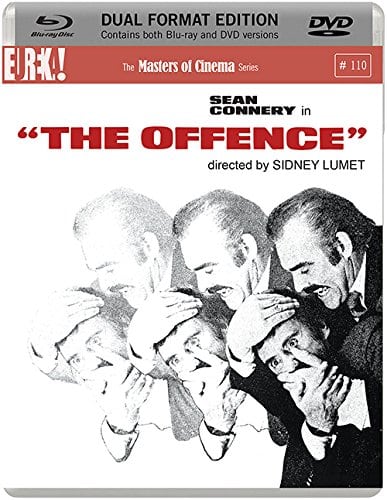
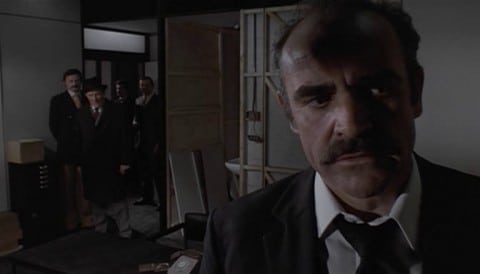
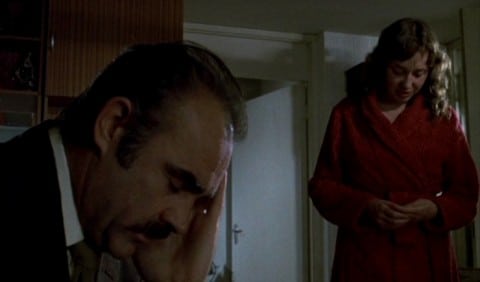

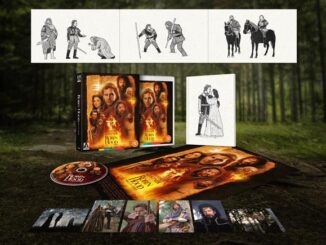
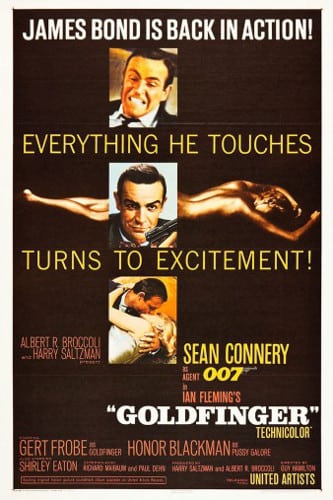
Great movie.